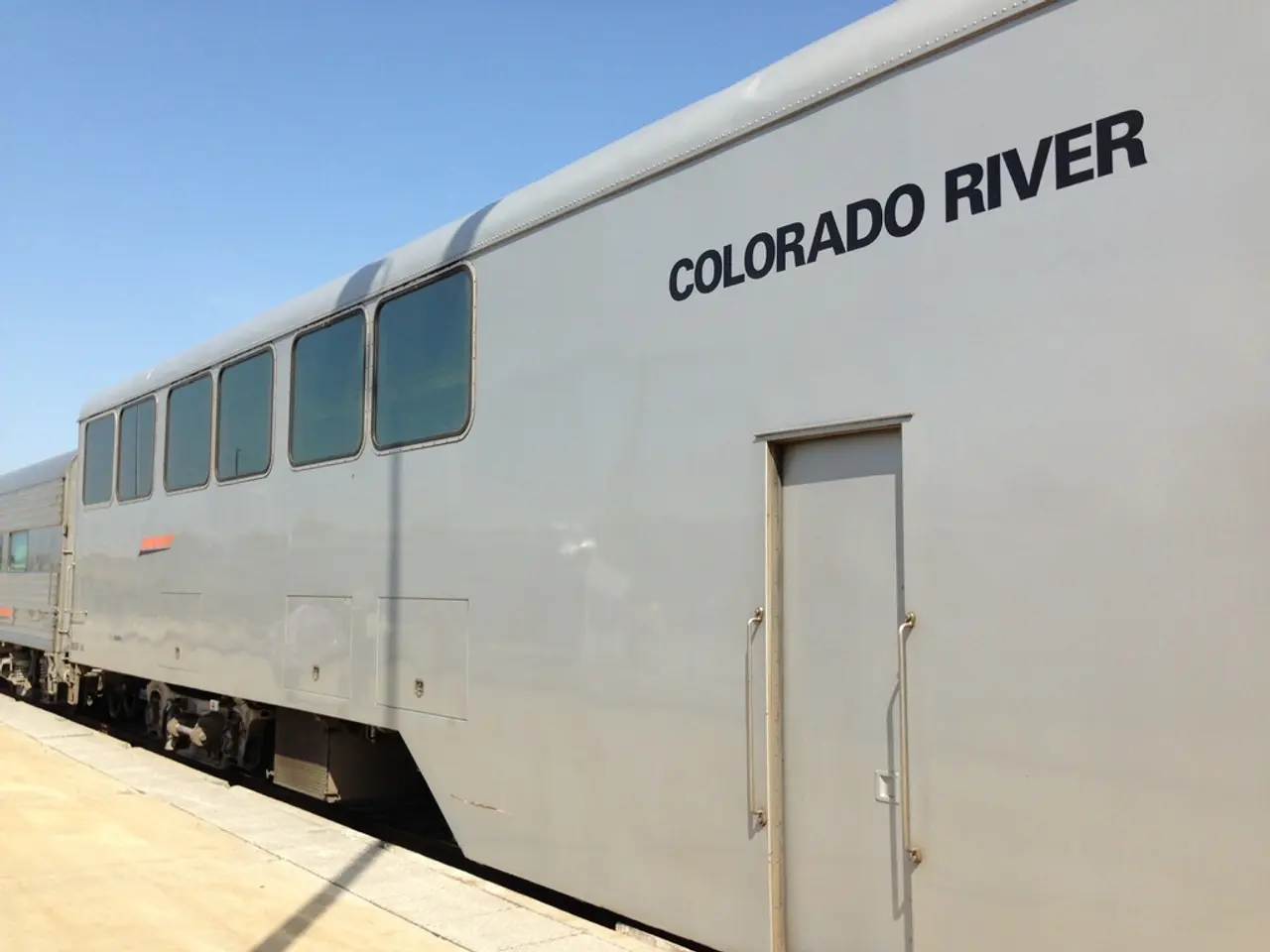Coastal vacation departures delayed in Germany: Slow-moving trains hamper travelers during holiday season
In a summer trip to the North Sea island of Fohr, a journey from Berlin to Dagebuell, a small town on the coast, serves as an illuminating comparison of Germany's and Switzerland's rail systems.
Germany's railway system, primarily operated by Deutsche Bahn, runs a high volume of trains daily (over 40,000) and is much improved compared to many countries. However, it is well known for delays and cancellations, which has even made Deutsche Bahn the subject of jokes among locals.
On this particular journey, an unexpected change in schedule occurred. The train was redirected to Sylt instead of Dagebuell, leaving passengers uncertain about the reasons behind the change. The train conductor, as a gesture of apology, distributed gift vouchers from Deutsche Bahn.
By contrast, Switzerland's trains are renowned for near-perfect punctuality and connectivity, even in remote areas, contributing to their strong reputation for reliability. However, occasional unexplained delays have been reported by users, which can be frustrating.
The differences between the two systems are evident when considering the reasons for delays. In Germany, challenges include congestion, aging infrastructure, operational complexity, and modernization delays. Switzerland, on the other hand, experiences fewer delays but occasional unexplained ones.
The summer trip also highlighted the differences in passenger experience. While Germany's rail system faces mixed reviews, often criticized during delays, Switzerland's system generally receives positive feedback, albeit with strict ticketing enforcement that can be aggravating.
As the summer trip unfolded, extensive building work was set to begin on the Hamburg to Berlin rail route, closing the line for nine months and requiring a 100-kilometer detour for long-distance trains. This further underscores the ongoing challenges faced by Germany's rail system.
In Fohr, most pubs, bars, and restaurants only accept cash payments, posing a challenge for tourists relying on digital means of payment. Despite these challenges, Germany's rail system remains a popular and efficient mode of transport compared to many other countries.
The comparison suggests Germany’s rail system is large and effective but struggles with delays and outdated infrastructure, whereas Switzerland’s system is smaller but more punctual and better maintained. As Germany invests little in its railway infrastructure, with many bridges, switches, and signal boxes being dilapidated or antiquated, modernization and investment are crucial for improving the system's reliability and efficiency.
- The world has taken notice of the differing rail systems in Germany and Switzerland, with international news media frequently reporting on the subject.
- As Europe prepares to embrace a greener lifestyle, public transit systems like Germany's will play a significant role in reducing carbon emissions, contributing to the global fight against climate change.
- The finance industry closely monitors the performance of both countries' rail systems, as their efficiency and reliability can impact economic growth and competition.
- In the midst of Europe's diverse environment, the differences in railway systems provide an interesting study for environmentalists, particularly those focusing on transportation and energy efficiency.
- The contrast between Germany's and Switzerland's rail systems also raises questions about society's role in shaping and maintaining public infrastructure, with some arguing for increased investment in maintenance and modernization.
- For travelers exploring Europe, the differences between Germany's and Switzerland's rail systems can significantly affect their journey, as unexpected delays or navigating unfamiliar payment methods can impact their experience.
- As cities worldwide invest in modernizing their transport systems, they can look to Germany and Switzerland as examples, with each system offering unique insights into efficiency, reliability, and passenger experience.





